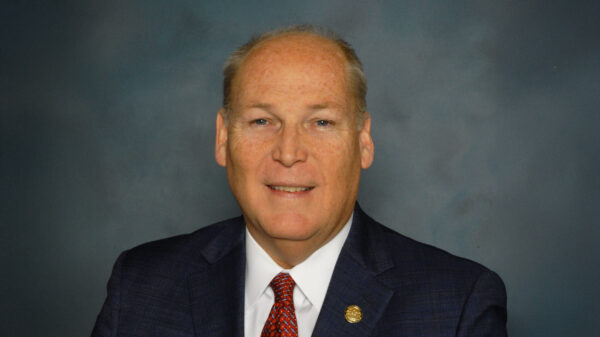Groups supporting a bill that would repeal Alabama’s Habitual Felony Offender Act are calling on the state’s two legislative chambers to bring the bill up for a vote.
Alabamians for Fair Justice, a coalition of 15 nonprofits and organizations statewide supporting criminal justice reforms, ask that both the state House and Senate take up House Bill 107, introduced by Rep. Chris England, D-Tuscaloosa. The state Legislature is more than half way through its 30-day session, and while the bill passed the Alabama House Judiciary Committee last week, it hasn’t yet been set on either chambers’ calendars to be brought up for votes.
England’s bill would change the state’s sentencing schemes that deal with people who have multiple convictions, and would allow people currently serving under the state’s law a chance to have their sentences reviewed.
Alabama prisons rank fourth-highest in the nation for the percentage of incarcerated people who are serving either life without the possibility of parole, life with the possibility of parole or sentences of at least 50 years, according to a February report by The Sentencing Project.
Of the state’s 22,896 inmates, 502 were serving life without the possibility of parole under the Habitual Felony Offender Act, according to the Alabama Department of Corrections’ latest monthly report. The law also increases sentences for thousands more in Alabama’s prisons, with 21 percent of all convicted under the law serving 20-year sentences.
England in a message to APR on Wednesday said he was unsure if his bill would soon be brought up in either chamber, but that he was working to get the House Rules Committee, which sets the calendar for each day’s legislative session, to include HB107.
The bill faced criticism from Rep. Matt Simpson, R-Mobile, during the House Judiciary Committee last week, who said that it would take away the ability to enhance sentences for those convicted of multiple crimes.
“If we continue to indefinitely incarcerate people, we’re not going to have the space to incarcerate the people that need to be there,” England said to Simpson.
The U.S. Department of Justice is currently suing Alabama and the Alabama Department of Corrections alleging violations of inmates’ constitutional rights to protection from prisoner-on-prisoner violence, sexual abuse and excessive force by prison guards. Prison overcrowding has exacerbated the problem in Alabama’s prisons, according to the DOJ’s lengthy investigations and lawsuit.
Alabamians for Fair Justice in a press release Wednesday said that the Habitual Felony Offender Act is one of the major reasons why Alabama struggles with a dangerously overcrowded prison system.
“The Habitual Felony Offender Act’s time has come. Since its adoption, it has resulted in thousands of unnecessarily harsh sentences, contributing to the state’s overcrowded prisons,” said Shay Farley, the Southern Poverty Law Center Action Fund’s deputy policy officer for the southeast, in a statement. The SPLC Action Fund is a member of the coalition. “There are more than 6,000 people over the age of 50 in ADOC custody, 30 percent, of whom, were sentenced under the HFOA.”
Farley said that the bill wouldn’t automatically release those already serving under the existing law, but it would give those who qualify an opportunity for judicial review.
“Repeal is necessary for moral and fiscal reasons and we urge the full House and Senate to take it up in the remaining days of this session,” Farley said.
Alabama Justice Initiative deputy director Veronica Johnson in a statement said the repeal of the Habitual Felony Offender Act is absolutely necessary, but that HB107 must be recognized as only a first step.
“Much more needs to be done to decarcerate Alabama’s dangerous and overcrowded prisons. We need real parole reform – not a system that sends people like Sgt. Lett back to prison, even though he did everything right,” Johnson said, referring to the recent matter of a man was paroled, then was told he’d be reincarcerated through no fault of his own. “We need investments in communities – not three new mega prisons that are going to cost taxpayers over $3 billion. Hopefully, the House and Senate will vote in favor of repeal soon and then we can move onto the next steps.”
Pastor Kenneth Sharpton Glasgow, founder of the Ordinary People Society, said two generations of Black people have suffered because of the Habitual Felony Offender Act, which was passed in 1977.
“People who went before the criminal courts were thrown in jail on sentences that did not reflect the reality of what happened. The idea of rehabilitation was not considered. It was all about punishment and oppression,” Glasgow said. “We have fought and organized against this law for decades, and hopefully the House and Senate will do the moral and just thing and end it now.”



















































